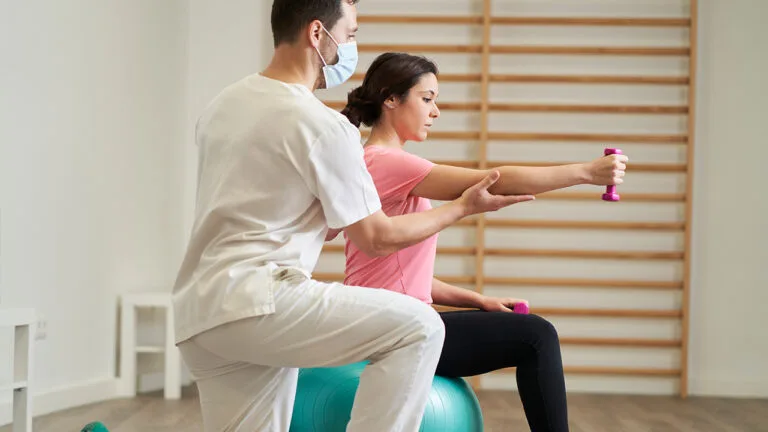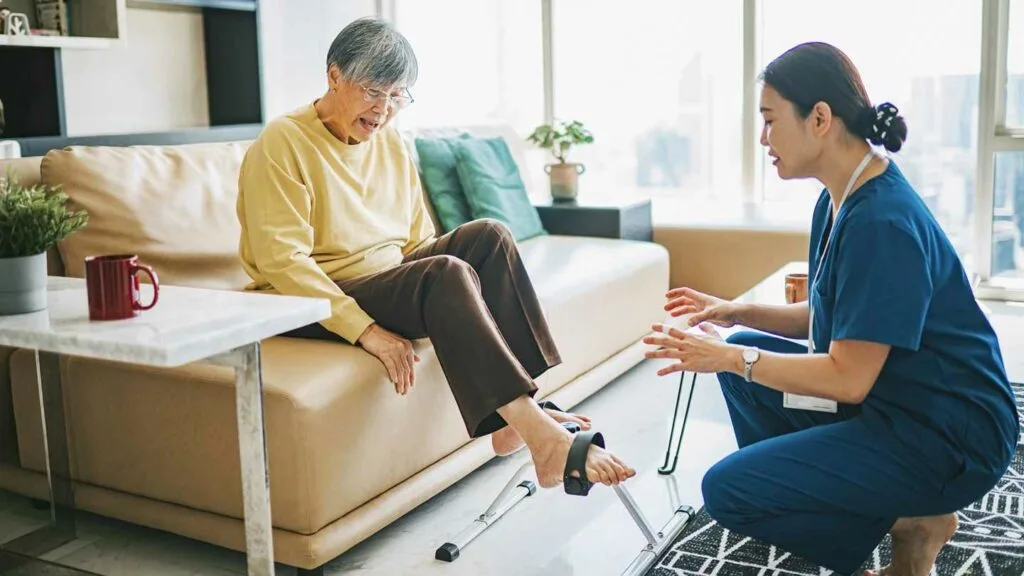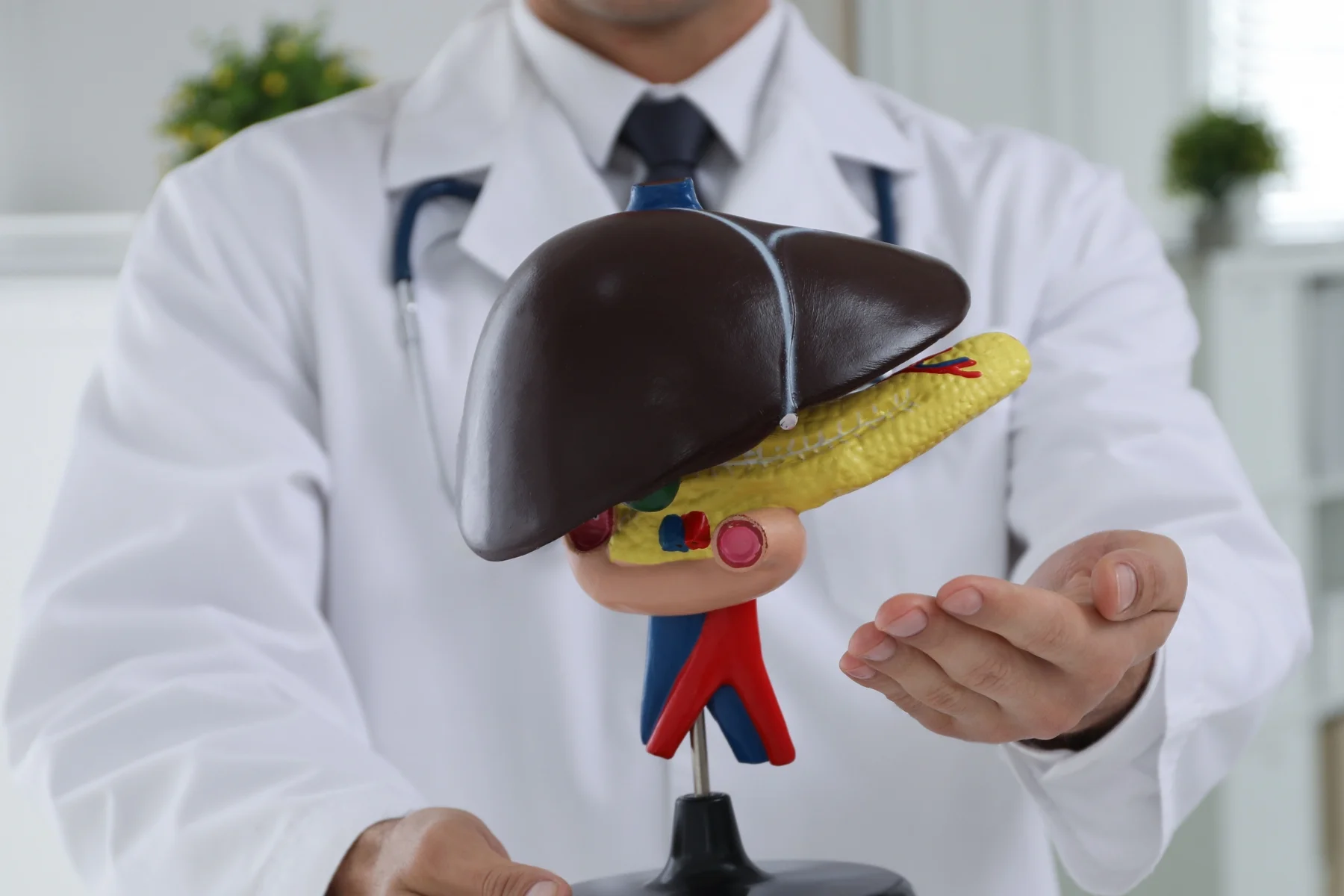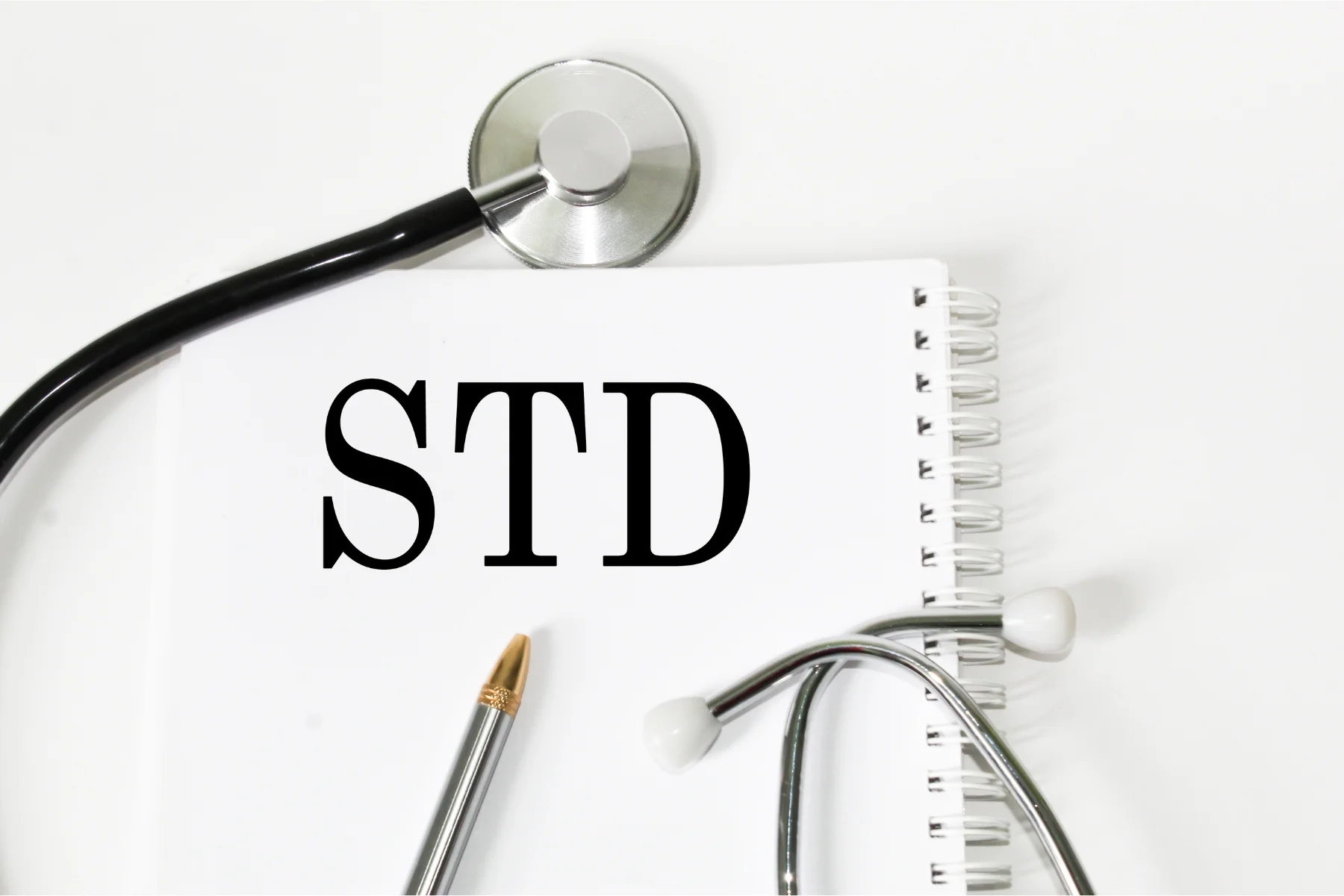Providing physical therapy for stroke patients at home: Guide
Welcome to your journey towards recovery! If you or a loved one has experienced a stroke, you understand the challenges it presents. However, with the right physiotherapy regimen, significant progress can be made, even from the comfort of your home. This guide aims to equip you with essential knowledge and exercises tailored to aid your stroke recovery.

Stroke Rehabilitation
Before delving into specific exercises, it’s crucial to understand the goals of stroke rehabilitation. Rehabilitation aims to restore as much independence as possible by addressing physical, cognitive, and emotional challenges post-stroke. Physical therapy plays a pivotal role in this process, focusing on restoring movement, strength, and function.
Key Exercises for Home-Based Therapy
Range of Motion Exercises
These exercises focus on maintaining and improving the flexibility of muscles and joints in affected limbs. By gently stretching these areas, stiffness, and contractures can be prevented, promoting better movement and function. Examples of the range of motion exercises include:
Wrist Flexion and Extension: Slowly flex and extend your wrist, moving it up and down.
Ankle Circles: Rotate your ankles in circular motions, both clockwise and counterclockwise.
Shoulder Rolls: Roll your shoulders backward and forward in a circular motion, allowing the muscles around your shoulders to stretch.
Strength Training
Strengthening muscles weakened by stroke is crucial for regaining mobility and function. These exercises help rebuild muscle strength gradually. Some examples include:
Leg Lifts: Sit or lie down and lift one leg at a time, holding it in the air for a few seconds before lowering it back down.
Arm Curls: Using light weights or resistance bands, curl your arms upward towards your shoulders, then slowly lower them back down.
Seated Marching: Sit on a chair with your feet flat on the floor and alternate lifting your knees towards your chest in a marching motion.
Balance and Coordination Exercises
Stroke often disrupts balance and coordination, increasing the risk of falls. These exercises focus on improving stability and coordination to prevent falls and enhance mobility. Examples include:
Standing on One Leg: Stand next to a sturdy support and lift one leg off the ground, balancing on the other. Hold the position for a few seconds before switching legs.
Heel-to-Toe Walking: Practice walking by placing the heel of one foot directly in front of the toes of the other foot with each step, like walking on a tightrope.
Seated Balance Activities: Sit on a stable surface and perform exercises that challenge your balance, such as reaching for objects while maintaining your seated position.
Gait Training
Regaining the ability to walk safely and independently is a significant milestone in stroke recovery. Gait training exercises focus on improving walking patterns and mobility. Examples include:
Walking with Support: Use a sturdy support, such as a walker or cane, to assist you while walking. Gradually increase the distance and speed as you gain confidence.
Assisted Walking: Have a caregiver or therapist assist you while walking, providing support and guidance as needed to ensure safety.
Obstacle Courses: Set up simple obstacle courses at home to practice navigating different surfaces and obstacles while walking.
Functional Activities
These exercises focus on relearning everyday tasks that may have been affected by stroke, such as dressing, grooming, and reaching for objects. Break down each task into manageable steps and practice regularly to improve independence and confidence. Examples include:
Dressing: Practice putting on and taking off clothes, starting with simple items like shirts and gradually progressing to more complex clothing items.
Grooming: Practice tasks like brushing your teeth, combing your hair, and washing your face, focusing on using both hands and improving coordination.
Reaching for Objects: Place objects at different heights and distances around your home and practice reaching for them using both arms, focusing on extending your range of motion and improving strength.
Tips for Successful Home-Based Therapy
Consistency is Key
Consistency is vital in any rehabilitation journey. By dedicating time each day to your physiotherapy exercises, you establish a routine that reinforces muscle memory and promotes steady progress. Regular practice also helps maintain the gains achieved during therapy sessions. Consistency not only improves physical outcomes but also fosters a sense of discipline and commitment to your recovery goals.
Start Slow, Progress Gradually
It’s essential to start your home-based therapy at a pace that matches your current abilities. Beginning with manageable exercises reduces the risk of injury and allows your body to adapt gradually. As you gain strength and confidence, gradually increase the intensity, duration, or complexity of your exercises. This gradual progression ensures that you challenge yourself appropriately while minimizing the risk of setbacks.
Listen to Your Body
Your body will provide valuable feedback during your therapy sessions. Pay close attention to any signs of discomfort, pain, or fatigue. These sensations indicate that you may need to modify the activity or take a break. Ignoring signals from your body can lead to overexertion or injury, hindering your progress. If you experience persistent or concerning symptoms, don’t hesitate to consult your physiotherapist for guidance and adjustments to your routine.
Stay Motivated
Maintaining motivation throughout your rehabilitation journey can be challenging, but setting realistic goals and celebrating achievements can help keep you focused and inspired. Break down your long-term goals into smaller, achievable milestones, and acknowledge each milestone you reach. Additionally, having a support system of family, friends, or healthcare professionals provides encouragement, accountability, and perspective during challenging times. Remember that progress takes time, and every step forward, no matter how small, is a victory worth celebrating.
Track Your Progress
Keeping track of your exercises, progress, and any changes you notice is instrumental in monitoring your rehabilitation journey. Whether you use a journal, a smartphone app, or another tracking method, recording your activities allows you to visualize your progress over time. It also helps identify trends, strengths, and areas for improvement. Reviewing your progress regularly can boost motivation, highlight achievements, and inform discussions with your healthcare team about adjustments to your therapy plan.
Seeking Professional Guidance
While home-based therapy is undoubtedly beneficial, it’s crucial to supplement it with professional guidance. A qualified physiotherapist possesses the expertise to assess your individual needs accurately. They can craft a personalized therapy plan tailored to your unique condition and recovery goals. Moreover, a physiotherapist can monitor your progress meticulously over time, ensuring that your therapy regimen evolves as you improve.
Professional guidance extends beyond mere exercise routines. Physiotherapists offer invaluable insights into proper technique, ensuring that you perform exercises safely and effectively. They can also provide essential advice on injury prevention and recommend adjustments to your regimen based on your response to treatment.
Contact Vesta Care to Schedule Your Free Consultation!

Vesta Care: Specialization in Stroke Rehabilitation
Stroke rehabilitation is a critical aspect of recovery for individuals who have experienced a stroke. At Vesta Care, we specialize in providing comprehensive and personalized stroke rehabilitation services to help stroke survivors regain function, independence, and quality of life.
Our Approach to Stroke Rehabilitation
Individualized Treatment Plans: We tailor rehabilitation programs to each patient’s unique needs, considering their specific impairments, functional goals, and medical history.
Multidisciplinary Care Team: Our team includes skilled physiotherapists, occupational therapists, speech-language pathologists, and other specialists who collaborate to optimize recovery outcomes.
Advanced Techniques: We utilize evidence-based techniques and cutting-edge technologies to promote neuroplasticity and facilitate recovery of motor skills, speech, and cognitive function.
Why Choose Vesta Care for Stroke Rehabilitation?
Expertise: Our clinicians have specialized training and experience in stroke rehabilitation, ensuring high-quality care and effective outcomes.
Compassionate Support: We understand the challenges of stroke recovery and provide compassionate support to patients and their families throughout the rehabilitation journey.
Holistic Approach: Beyond physical rehabilitation, we address cognitive and emotional aspects of recovery to promote overall well-being.
Take Action: Schedule Your Free Assessment
Step 1: Contact Us
Take the first step towards stroke recovery by contacting Vesta Care to schedule your free rehabilitation assessment. Our team will assess your needs, discuss your goals, and create a personalized rehabilitation plan.
Step 2: Begin Your Recovery Journey
Start your rehabilitation journey with Vesta Care’s dedicated stroke rehabilitation team. Benefit from expert guidance, evidence-based therapies, and comprehensive support to regain independence and improve quality of life.
Experience the Benefits of Stroke Rehabilitation with Vesta Care
Improved Mobility: Regain strength, balance, and coordination to perform daily activities more independently.
Enhanced Communication: Overcome speech and language challenges through targeted therapies and techniques.
Optimized Functionality: Learn adaptive strategies to manage activities of daily living and maximize functional abilities.
Invest in Your Recovery Today
Don’t wait to take action towards stroke recovery and improved quality of life. Schedule your free assessment with Vesta Care and benefit from specialized stroke rehabilitation services designed to empower you on your journey to recovery.
Contact Vesta Care now to schedule your free stroke rehabilitation assessment and take the next step towards a brighter future!
Why Choose Vesta Care?
Specialized Expertise: Benefit from our team’s specialized training and experience in stroke rehabilitation.
Holistic Care: Receive comprehensive support addressing physical, cognitive, and emotional aspects of recovery.
Positive Outcomes: Join countless individuals who have achieved meaningful improvements in function and independence through Vesta Care’s stroke rehabilitation programs.
Empower Yourself with Vesta Care
Empower yourself or your loved one with specialized stroke rehabilitation services from Vesta Care. Take charge of your recovery journey and embrace the possibilities of life after stroke.
Reach out to Vesta Care today and discover how stroke rehabilitation can transform your quality of life!
In a Nutshell

Recovering from a stroke is a journey that requires patience, dedication, and support. By incorporating physiotherapy exercises into your daily routine, you can enhance your recovery and regain independence. Remember, every small step forward is a significant achievement on the path to recovery. Stay committed, stay positive, and don’t hesitate to reach out for professional support when needed. You’ve got this!




